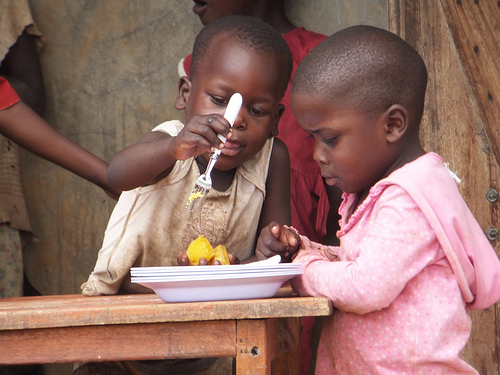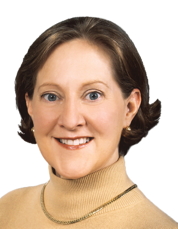It may frustrate those of us who work in this area but it is hardly surprising that innovation is not the first thing that springs to the public’s mind when they think about agriculture.
After all, farming has taken place for almost as long as women and men have walked the planet. It is also true that, for millions of farmers across Africa and the developing world, the fundamentals and tools of agriculture remain the same as before – back-breaking planting, tilling and harvesting.
But there is also, of course, a huge amount that has changed and improved.
New high-yielding, disease-resistant, stress-resistant and more nutritious varieties of staple crops like sweetpotato, rice and maize are being developed and distributed widely. The International Potato Center (CIP) is deploying high-vitamin A sweetpotato across Sub-Saharan Africa, and the International Maize and Wheat Improvement Center (CIMMYT) is providing 140 varieties of drought-tolerant maize to countries across the continent.

Ugandan children dig in to a plate of orange sweet potato. Photo by: A. Ball (HarvestPlus)
New techniques and technologies improve yields while reducing water use and wider impacts on the environment. Organisations like the Alliance for a Green Revolution in Africa are teaching farmers to restore health to their depleted soils.
Thanks to mobile technology, farmers can easily know farm-gate prices, anticipate weather variations and even discover which seeds and fertilizer work for their soil. Platforms like Digital Green allow farmers to share information with each other – so far, over 2,800 short videos have been shared between 330,000 farmers across 3,000 villages in India, Ethiopia, Ghana and Tanzania and Mozambique.
Significantly, there are 200 million fewer hungry people today than 20 years ago.
The problem, as we know, is that these incredible developments and the hard work of farmers have not yet enabled us to ensure that everyone has enough nutritious food. Even today, 1.2 billion people will not get enough calories or the nutrients, minerals and vitamins they need to thrive. By 2050, we need to be ready to feed another two billion people.
Without meeting these basic needs, our hopes of wider progress will simply wither away. Malnutrition is one of the main contributors to high child and maternal mortality in developing countries. It is hard to learn at school or work productively if you have not had enough of the right food.
Hunger and malnutrition trap people, communities and countries in poverty. Without breaking these shackles our ambitions for the future can’t be achieved.
That is why I believe that Sustainable Development Goal 2 – the ambition to end hunger, achieve food security, improve nutrition and promote sustainable agriculture – is absolutely critical. Even more so in a climate-stressed world where we’ll be exposed to floods, droughts and storms of increased frequency and severity, and higher temperatures. Climate change is a direct threat to harvests, farmer incomes and our ability to feed a growing population.
But even then, we must remember that SDG2 is achievable.
We need to scale up our ambition and think bigger, but I am confident that we can secure, just 15 years from now, a world free of hunger.
That’s why our Foundation has teamed up with Global Poverty Project, ONE and Oxfam to show the world that agriculture matters.
This World Food Day, on October 16th, I will be in Des Moines, Iowa for the World Food Prize, an award that each year recognises an outstanding individual whose work helps makes the world more food secure. On the same day, my colleagues and partners will be in Milan to ask world leaders and the international community to commit to an action plan to deliver SDG2. We need a roadmap with clear commitments and practical steps to realise this goal. And we need relevant parties on board, including those around the table at the Paris climate conference in December.
Whether it’s ending hunger and malnutrition, reducing child deaths, fighting poverty or empowering women, join us to make people see that it #StartsWithFarmers.
Pamela Anderson will take part in a a session at the Borlaug Dialogue held in Des Moines, Iowa this week entitled “The Orange Revolution: a Novel Approach to Traditional Challenges”. Follow #FoodPrize15 for the latest coverage of the event.



